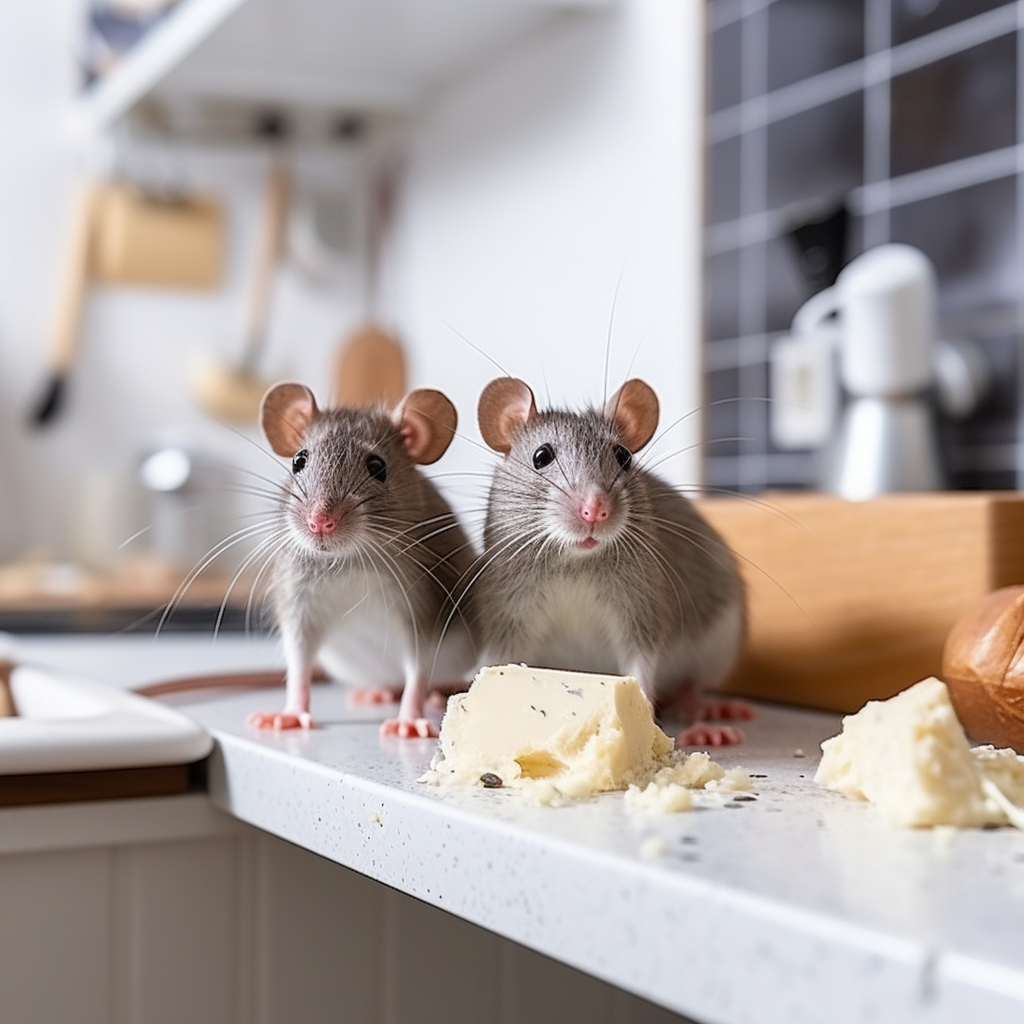Rodents are some of the worst household pests to deal with for various reasons.
Not only are rodents in Maryland sneaky and can rapidly multiply, but they also carry many diseases that can be deadly to humans and pets.
Whether you are dealing with an active rodent infestation or want to prevent these pests from entering your home, here are some of the top tips for keeping rodents out of your space.
Why Do Rodents Enter Homes?
The biggest reason rodents typically enter homes is in search of food, water, and shelter. The cold winter months are the ideal time for these pests to make their way indoors, as it can be difficult for them to survive in the freezing temperatures outside.
Therefore, a disorderly home will be the most likely to attract rodents, as well as homes with holes in siding, screens, and other open entryways.
Are Rodents Dangerous?
While rodents rarely bite people, they can be extremely dangerous to humans due to the number of diseases these pests carry. Rodents can transmit these diseases to humans in several ways via direct contact, contact with urine or feces, or through bites.
Rodents can also contaminate human food sources by making their way into kitchen cabinets and pantries and feasting on things like cookies and potato chips.
Signs of Rodents In Your Home
To fend against rodents, you must understand the signs of a rodent infestation.
The telltale signs of a rodent in your home include:
- Rodent droppings
- Noise coming from inside walls
- Gnaw marks
- Burrows
- Footprints and tracks
- Rodent sightings
How to Get Rid of Rodents
Once spotted, there are several DIY, preventative, and professional strategies to get rid of rodents.
1. Eliminate Food Sources
First, eliminate all attractants that are driving rodents to your humble abode.
Eliminating food sources is a good way to deter rodents from your home, as food is one of the main reasons they enter homes in the first place. Start by going through your pantry and cabinets and sealing any open food, including dry food, such as cookies, potato chips, and cereal packages. It is also a good idea to get into the habit of washing your dishes immediately after eating to prevent rodents from raiding your kitchen.
2. Seal Entry Points
Block off all access points to your home. Sea any possible entryways, such as cracks and crevices, using caulk, spray foam, and flashing.
3. Apply Traps
DIY traps are effective at stopping small infestations of rodents and work by applying a bait that lures a rodent into the trap and kills them.
There are several different types of rodent traps on the market, including:
- Snap traps
- Glue traps
- Humane traps
- Spin traps
Experiment with different traps to see which works the most effectively in your home.
Be sure to apply traps to areas where rodents dwell the most, including basements and attics.
See More: How to Get Rid of Mice When Traps Don’t Work.
4. Use Bait Stations
Rodent bait stations can also be effective in killing rodents. These bait stations work by luring rodents to eat a lethal amount of bait before leaving the station. After a couple of days, the rodent will typically die. However, it is important to note that bait stations can harm pets and small children if not set up properly and kept away from your most vulnerable family members.
5. Call an Exterminator
When it comes to a rodent infestation, it is always best to seek the help of a pest control professional. Rodents are notoriously difficult to treat and can spread many diseases to humans, so an experienced exterminator specializing in rodent control is best to handle these pests.
Rodent Prevention Ideas
Of course, the best treatment plan for any pest is always prevention. So here are some rodent prevention tips to keep rodents away for good.
Keep Your Home Clean
Keeping your home clean is one of the best ways to prevent rodents from entering, as these pests are drawn to food and water sources. Seal all open food containers and garbage receptacles and fix any leaks in your home. Use a dehumidifier to make climates less hospitable to rodents and other pests like roaches as well.
Get a Cat
Cats are natural predators of rodents, so getting a cat may be a good idea if you have seen rodents in your home or if you live in an urban area where rodents are more common.
Essential Oils
Rodents are known to dislike the scent of peppermint, lemon, eucalyptus, and citronella, so diffusing these essential oils in your home may be effective in keeping rodents away. If essential oils aren’t your thing, you can try burning candles with these scents or keeping potted plants in your home.
FAQs: Rodent Control
What diseases can rodents transmit to humans?
There are several diseases rodents can transmit to humans, with a few of the most common being hantavirus, plague, salmonella, and lymphocytic choriomeningitis virus, or LCMV. Because of the severity of these diseases, you must get any present rodent infestations in your home under control to prevent you and your loved ones from getting sick.
What are the costs associated with rodent control services?
The cost of professional rodent control services can vary depending on where you live, the severity of the infestation, and the company you choose to work with. At Pest Czar, we base our pricing on the unique combination of treatment methods we will have to use for a particular infestation following a thorough inspection of your home.
Can rodents come back after being removed from my home?
Rodents can return to a home after extermination, typically if the source of the infestation is not addressed. Ideally, an experienced pest control company will be able to identify the source of the infestation and take the proper steps to treat the problem and get rid of the rodents for good.


